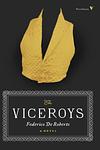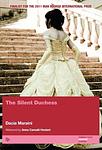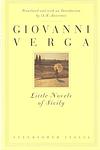The Greatest "Historical fiction, Sicily" Books of All Time
Click to learn how this list is calculated.
This list represents a comprehensive and trusted collection of the greatest books. Developed through a specialized algorithm, it brings together 300 'best of' book lists to form a definitive guide to the world's most acclaimed books. For those interested in how these books are chosen, additional details can be found on the rankings page.
Genres
Historical fiction is a genre of literature that combines fictional stories with real historical events, settings, and characters. These books often take place in a specific time period and are based on research and factual information, but also include imaginative elements to create a compelling narrative. Historical fiction allows readers to experience the past in a unique and engaging way, while also providing insight into the social, cultural, and political issues of the time.
Countries
Date Range
Reading Statistics
Click the button below to see how many of these books you've read!
Download
If you're interested in downloading this list as a CSV file for use in a spreadsheet application, you can easily do so by clicking the button below. Please note that to ensure a manageable file size and faster download, the CSV will include details for only the first 500 books.
Download-
1. The Leopard by Giuseppe Tomasi di Lampedusa
"The Leopard" is a historical novel set in 19th-century Sicily, during the time of the Italian unification or Risorgimento. It centers on an aging, aristocratic protagonist who is coming to terms with the decline of his class and the rise of a new social order. The narrative weaves together personal drama with the larger political and social upheaval of the time, providing a rich, nuanced portrait of a society in transition. Despite his resistance to change, the protagonist ultimately recognizes its inevitability and the futility of his efforts to preserve the old ways.
-
2. The Viceroys by Federico De Roberto
"The Viceroys" is a historical novel set in 19th century Sicily, during the Italian unification. The story revolves around the aristocratic Uzeda family, who are trying to retain their power and influence in the changing political landscape. The narrative explores themes of power, corruption, and the decline of the aristocracy through the lens of this manipulative and scheming family. The book is a critique of the social and political system of the time.
-
3. The Silent Duchess by Dacia Maraini
This novel is a poignant exploration of the life of an 18th-century Sicilian noblewoman, born into privilege yet silenced by a congenital disability. Through her eyes, readers experience the constraints and expectations placed on women of her time, navigating a world where her voice is metaphorically and literally stifed. Despite the limitations imposed by her society and her own family, she embarks on a journey of self-discovery and defiance, seeking love, intellectual fulfillment, and a sense of identity within the opulent yet oppressive confines of her aristocratic life. The narrative delves into themes of power, gender, and the quest for personal freedom, painting a vivid picture of historical Sicily and the resilience of the human spirit.
-
4. Little Novels Of Sicily by Giovanni Verga
The book is a collection of short stories that delve into the lives of Sicilian peasants and fishermen in the late 19th century, offering a vivid portrayal of their daily struggles, passions, and traditions. Through a series of evocative narratives, the work captures the essence of rural Sicilian life, with its harsh realities and simple joys, while also exploring universal themes of love, honor, and the inexorable forces of change. The author's masterful use of regional dialect and keen observation of human nature render a poignant and authentic picture of a world where the beauty of the landscape contrasts sharply with the toil and hardships of its inhabitants.
-
5. The Wine Dark Sea by Leonardo Sciascia
In "The Wine Dark Sea," readers are presented with a collection of short stories that delve into the complexities of Sicilian life, exploring themes of justice, truth, and the human condition. The narrative weaves through tales of ordinary people confronted with extraordinary situations, often involving crime and moral dilemmas. The author's sharp observations and subtle irony highlight the intricate relationship between the individual and the often-oppressive societal structures, painting a vivid picture of a land steeped in beauty and contradiction, where the line between right and wrong is as blurred as the horizon on the titular wine-dark sea.
-
6. Garibaldi And The Thousand, May 1860 by George Macaulay Trevelyan
The book provides a historical account of Giuseppe Garibaldi's daring expedition with his legendary "Thousand" volunteers in May 1860, which played a crucial role in the unification of Italy. It details their departure from Quarto, their landing in Sicily, and the subsequent military and political maneuvers that led to the significant conquest of Naples. Through vivid narrative and meticulous research, the author captures the essence of this pivotal moment in Italian history, highlighting Garibaldi's leadership, strategy, and the fervent nationalist spirit that drove his small force to achieve monumental success against larger, more equipped armies.
Reading Statistics
Click the button below to see how many of these books you've read!
Download
If you're interested in downloading this list as a CSV file for use in a spreadsheet application, you can easily do so by clicking the button below. Please note that to ensure a manageable file size and faster download, the CSV will include details for only the first 500 books.
Download




